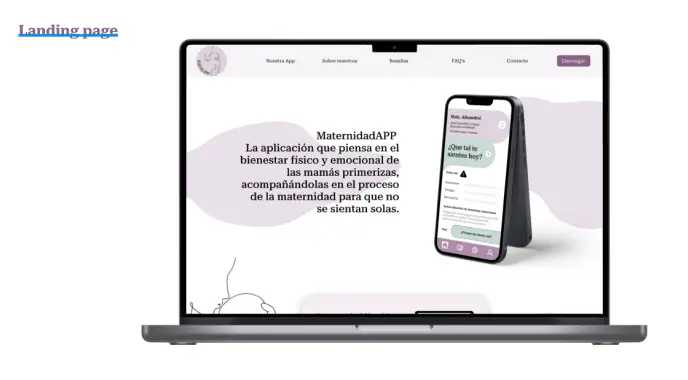
Rol:
UX UI
Tools:
Figma | Miro | Maze | Whimsical | Zeroheight | Google Forms |
Skills:
Design Thinking
Challenge:
Designing a digital experience to help mothers reconnect with their identity beyond motherhood.
Project Summary: Materni App is a project born out of a need I discovered up close: the challenge many women face in regaining their identity after becoming mothers. The transition to motherhood brings profound changes in personal and professional life, and is often accompanied by a sense of loss of identity. This project aims to be a safe and nurturing space where every mother can reconnect with herself, set personal goals, and rediscover her essence.
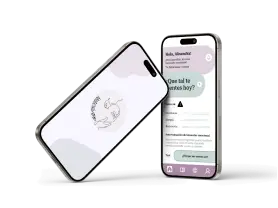
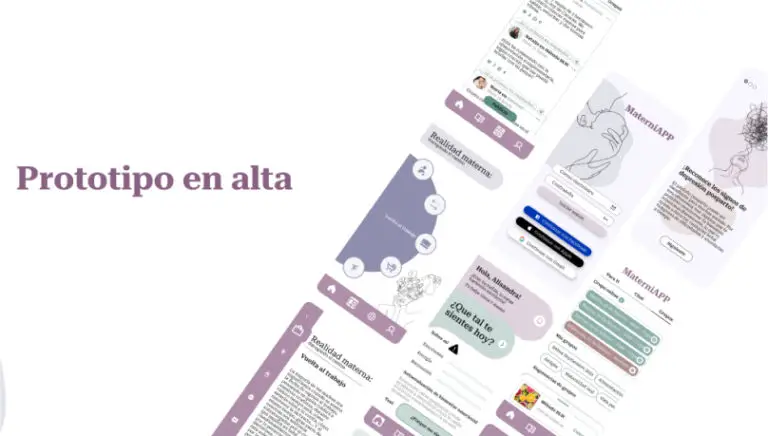
Methodology: Design Thinking
To address this complex challenge, I used the **Design Thinking** methodology, structuring the project in five key stages:
1. Empathise: We started with a qualitative research phase, where I conducted in-depth interviews with women at various stages of motherhood to capture their emotional and psychological needs. This stage was crucial to build a solid foundation of empathy with users and to understand the emotional impact such an app could have on their lives.
2. Define: From the insights gathered, we defined a clear issue: the need for a digital tool that would allow mothers to reconnect with their personal essence, creating a balance between their role as mothers and their individual identity. This definition process was key to focus the app’s functionalities on aspects that would really add value.
3. Ideate: With the team, we explored various ideas to develop a meaningful and functional experience. At this stage, we generated and prioritised concepts such as: self-knowledge tools, spaces for connecting with other mothers and personal development functionalities. After an evaluation phase, we selected the ideas with the greatest potential for impact.
4. Prototyping: We developed high-fidelity prototypes to represent the structure and functionality of the app, prioritising an intuitive and welcoming interface. We designed flows that facilitate access to each functionality, maintaining a warm tone that invites mothers to explore without overloading them.
5. Testing: We tested the prototypes with a group of mothers in different contexts, obtaining valuable feedback on usability and effectiveness. Testing revealed the importance of supportive messages and simple navigation, elements we adjusted to improve the final experience.
Impact and Learning:
The Design Thinking methodology allowed us to structure the design process holistically, focusing on creating truly meaningful solutions for user mothers. Materni App not only became a functional tool, but also a digital space with an emotional and transformative impact. It was an enriching experience that confirmed how design can make a real difference in people’s lives.
—
This text highlights how you used Design Thinking at each stage of the project, making evident the value of each phase in the final result.
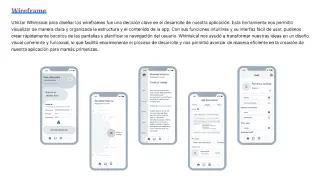

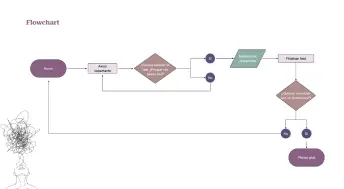
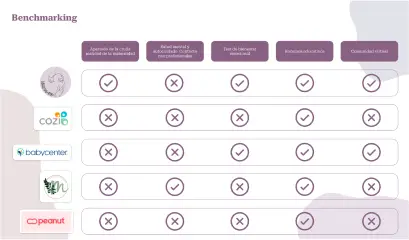
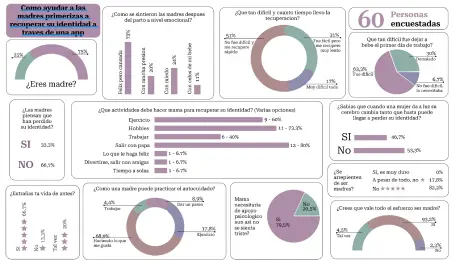
Solution: Materni App is presented as a platform that accompanies mothers in the process of personal reconnection and rediscovery of their identity. Through self-knowledge tools, community spaces and functions for the development of habits, the app promotes a balance between the role of mother and personal identity. The design seeks to create a space of trust and support where each woman can set goals, reflect on her needs and find a supportive community.
